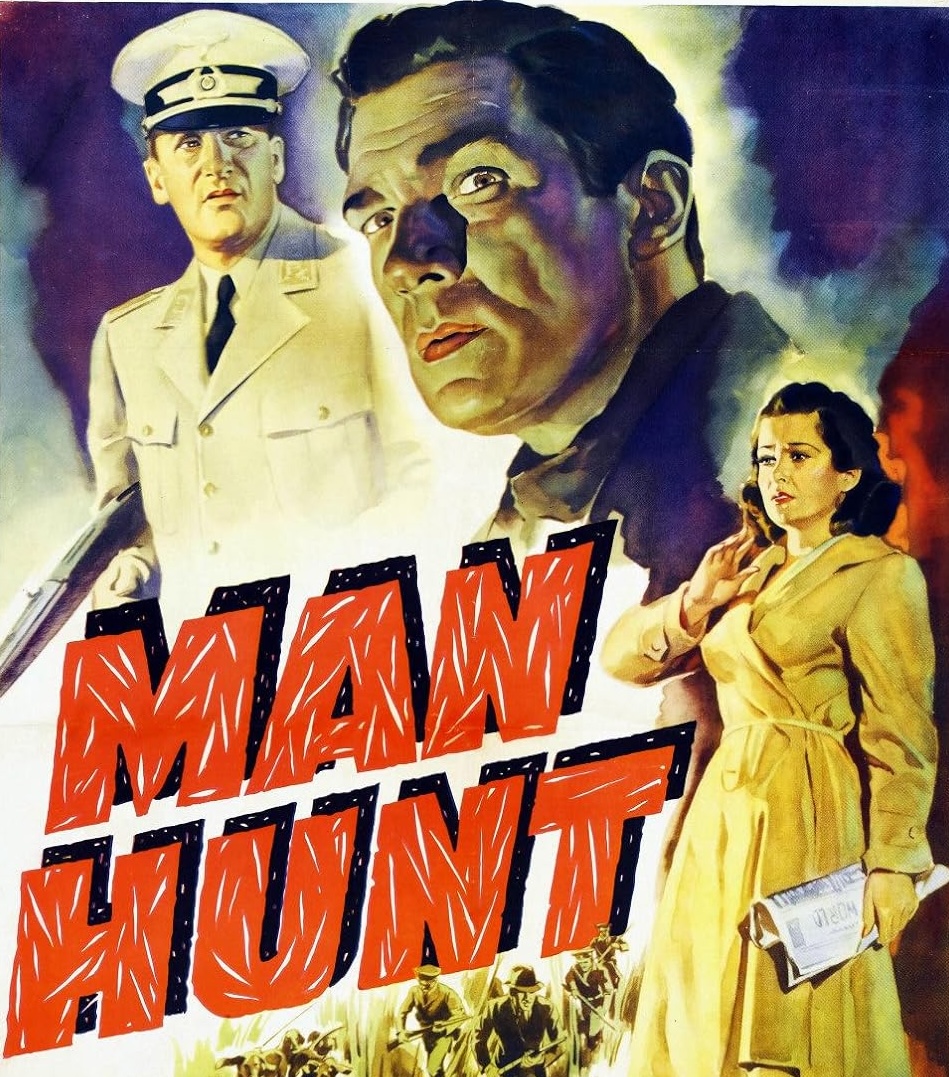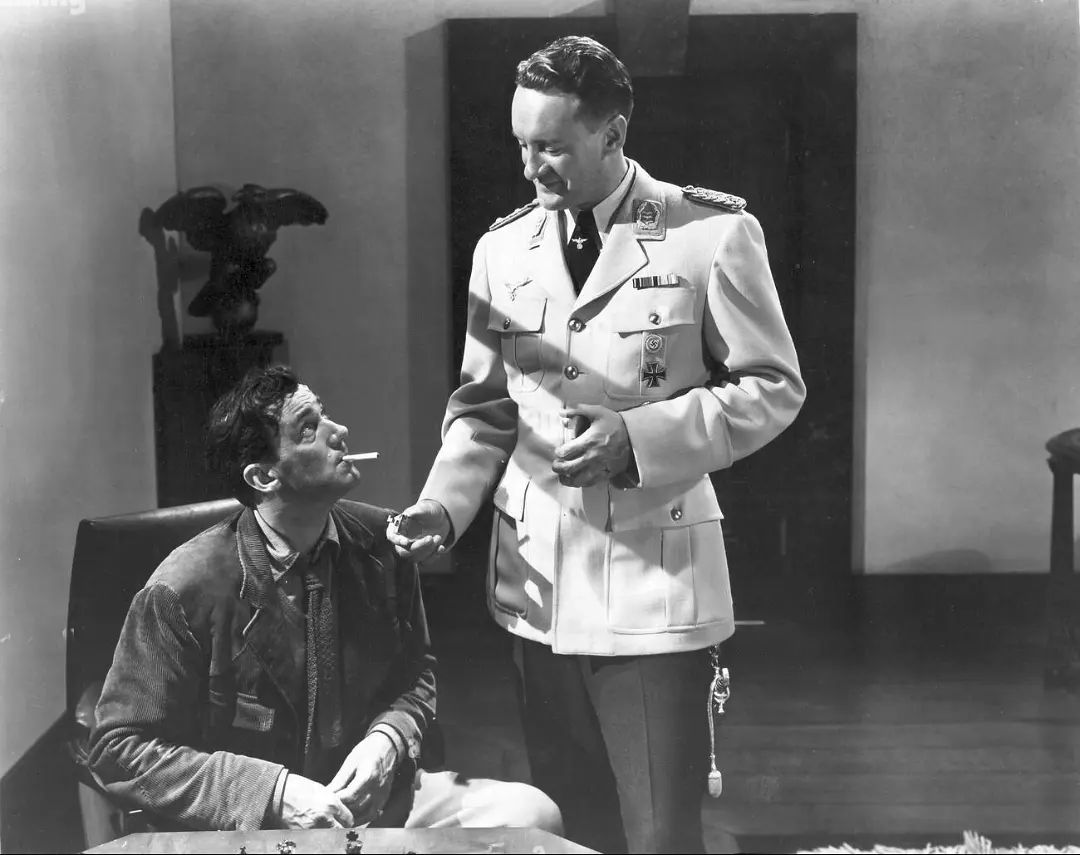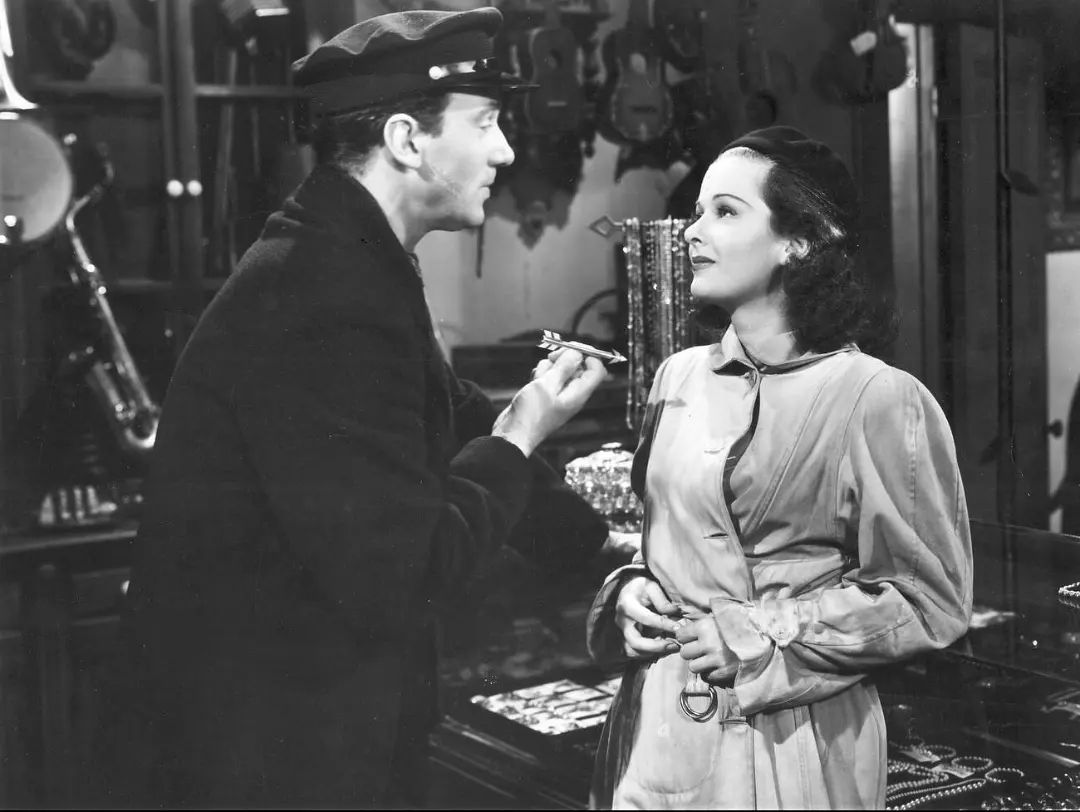
In theory, Fritz Lang’s Man Hunt faced the same problem that many other Hollywood films of the same era (Hitchcock’s Foreign Correspondent, for instance) faced: How to be anti-Nazi while maintaining a fig leaf of objectivity — a necessary fig leaf, given the supposed neutrality of the United States. But this movie is about as anti-Nazi as it’s possible to be. That said, opposition to Nazism isn’t what the movie is about. To explain why I say that, I have to tell the story.

Alan Thorndike (Walter Pidgeon) is a famous English big-game hunter who is caught in the woods near Berchtesgaden and accused of attempting to assassinate Adolf Hitler. Under interrogation by a Nazi official (played with exquisite sliminess by George Sanders) he denies the charge, but is told that he will not be released, indeed will be killed, unless he signs a confession. He refuses, but eventually escapes to London, pursued by Nazis.
Overall, the movie doesn’t have a very Lang-like look and feel, but there’s a terrific pursuit scene in the Underground that reminds me strongly of M.

In any event: the Nazis chase Thorndike about the city and eventually, though quite accidentally, into the arms of a cockney girl called Jerry (Joan Bennett), whom he charms. She falls hard for him, though the feeling is not quite mutual. He’s attracted to her but not besotted; she’s a kid to him. In the end Thorndike kills his Nazi pursuers, though not before they find Jerry and kill her, because she refused to betray his location. (There’s a strong dose of poetic justice in the way he does this, but that’s one detail I won’t spoil.)
Thorndike is wounded in the final confrontation with his enemy, and two scenes follow. In the first, Thorndike is in the hospital, deliriously replaying in his mind his time with Jerry; in the second, he parachutes out of an airplane — not under orders, but on his own initiative — and into Germany. His descent is accompanied by much bombast. It’s the same kind of pseudo-patriotic noise that defaces the conclusion of Foreign Correspondent.
What the bombast (including a final voiceover) obscures is the real point of the story, which is this: Thorndike is on a suicide mission. At a moment when the Nazis control most of Europe and any meaningful contesting of their continental domination is years away, he floats down to German soil carrying only a high-powered hunting rifle. At the beginning of the film he had told his interrogator that he didn’t enjoy killing any more — he had come to prefer the “sporting stalk” in which he finds and targets his quarry but doesn’t bother to pull the trigger — but now his only thought is killing. He will not come back; he does not want to come back.

It is clear that he has but one goal: atonement. He had stumbled into Jerry’s life, charmed her, allowed her to assist him, and by those means he had led her straight to her death. And the only way he can think to atone is to kill as many Germans as he can and then suffer death himself. Man Hunt isn’t a patriotic drama; it’s an existentialist tragedy.